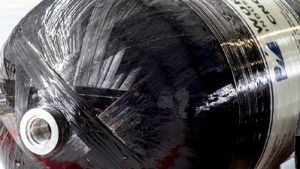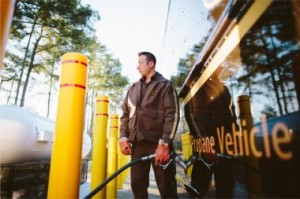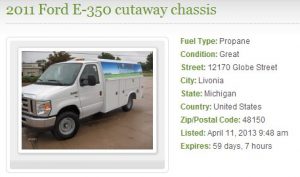Editor’s note: Here’s a detailed look at how propane autogas is making headway in clean transportation programs that school districts around the country are deploying. Funding is available, and it’s important to know the selling points of the clean fuel being integrated into the fleet. Many thanks to Propane Education & Research Council (PERC) for contributing.
School districts and school bus contractors across the nation are moving toward cleaner fuels, in part because of the availability of Volkswagen Environmental Mitigation Trust funds allocated by their state. They have many options to 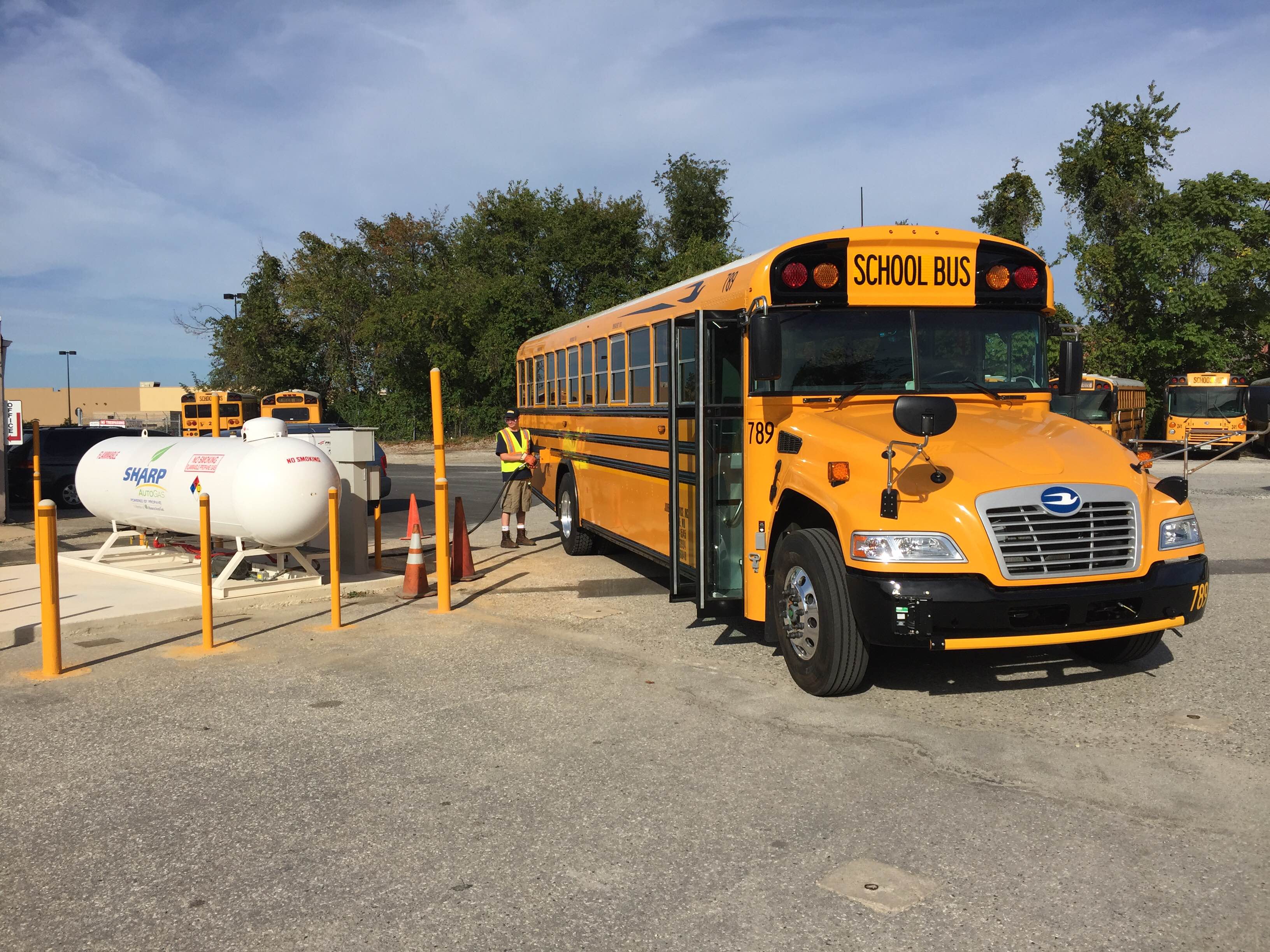 replace older, dirtier diesel school buses with modern counterparts, as Green Auto Market’s Feb. 3 post correctly points out.
replace older, dirtier diesel school buses with modern counterparts, as Green Auto Market’s Feb. 3 post correctly points out.
The challenge is reducing nitrogen oxides, which is one of the nation’s biggest air quality problems. The federal government regulates nitrogen oxide emissions due to their harmful impact on both the environment and human health.
Propane autogas is one of the most sought-after options to reduce nitrogen oxides. According to a recent study by West Virginia University’s Center of Alternative Fuels, Engines, and Emissions, NOX emissions are 34 times higher in a diesel school bus than in a propane bus, over a stop-and-go route. Propane buses cut particulate matter to virtually zero and nitrogen oxides by 96 percent.
Right now, more than 19,700 propane school buses transport about 1.2 million kids to school across the nation each day. Almost 1,000 school districts have discovered this advanced clean fuel system technology. Propane buses can be found in major urban areas like Boston, Chicago, Los Angeles, Detroit and Atlanta, along with smaller districts, such as Neosho, Mo. and Chenango Forks, N.Y.
Compare that to 2,500 CNG school buses and 200 electric school buses across the nation.
Here’s another benefit: economics. Propane autogas is naturally much cleaner than diesel in composition and combustion, which translates to substantially lower maintenance costs. Plus, propane fuel costs about 50 percent less than diesel. According to ANL AFLEET Tool data, in a dollar-for-dollar comparison of Type C school buses, propane buses reduce nitrogen oxide emissions more than any other type of fuel.
Those transportation department savings can go back into classrooms. The World LP Gas Association’s 2018 report, “The Role of LPG in Shaping The Energy Transition,” states that if all the nation’s diesel school buses were converted to propane, U.S. school districts could hire 23,000 additional teachers with the fuel and maintenance savings.
When it comes to fueling, there are already thousands of public propane stations across the country. For districts that want onsite infrastructure, propane providers will install a station for little or often zero cost with a fuel contract. And with a range of up to 400 miles on a single refill, propane buses provide the distance that school systems need to get through daily routes and after school events.
But the most important takeaway must be the health and safety of our children, and that means reducing nitrogen oxides.
“The biggest thing we have noticed is that the clean operation of the propane buses has reduced the emissions in our garage and around our schools,” said Barry Bryan, director of transportation for the Bradford Area School District in Bradford, Pennsylvania. “There is far less crude build-up on our computer screens inside of our maintenance bays, which is obviously a plus for our lungs.”
Propane is unique in that its upfront and maintenance costs, range, ease of use and, most importantly, ultra-low emissions are all in the same package. With propane, districts get all the cost and emission-reducing benefits without the sticker shock of electric school buses or the complexity and dirtiness of diesel.
Tucker Perkins is the president and CEO of the Propane Education & Research Council based in Washington, D.C.
And in other news…………
- Hyundai Motor Company on Monday announced the expansion of its partnership with the US Department of Energy (DOE) and its support of the DOE Hydrogen and Fuel Cells Program. The automaker says that its commitment aims to increase technical collaboration to better understand challenges and to collect and publish independently validated data from demonstrating fuel cell technologies and hydrogen infrastructure under real world operating conditions. Hyundai will provide the energy department with five Nexo fuel cell electric vehicles (FCEVs) for use in various regions of the country including Washington, DC, to help advance research and development of fuel cell technologies. Data from the vehicles and infrastructure will be collected, analyzed and published to identify additional research needs in key areas.
- The National Transportation Safety Board released findings on its investigation into fatal crashes that involved Tesla’s Autopilot driver-assistance system. NTSB disclosed yesterday that in March 2018, Walter Huang, a 38-year-old Apple software engineer, was driving his Tesla Model X in Mountain View, Calif., in Autopilot mode at about 70 mph when it crashed into a safety barrier. Huang had reported that on prior trips, the car had steered away from the highway, according to the documents made public.
- Waste Management CEO Jim Fish indicated his company will continue to bet big on converting its fleet from diesel to compressed natural gas (CNG) in comments at the company’s annual Phoenix sustainability forum. “By the end of the year, almost 70% of our trucks on the road will run on CNG, and by the end of next year it will be almost 75%,” he said at the Jan. 30 event.
- Amazon and Instacart are leading the path toward grocery shopping and delivery. But don’t forget about competitors including parent company Albertson’s Vons and Pavilions grocery delivery services. Vons has been in this business since the 2000s, and you can still see its dedicated delivery vans bringing groceries to customers. Pavilions is promoting its Unlimited Delivery Club with a few incentives like $20 off your groceries and free delivery on you first order if you spend $75 or more. Albertsons is working with Instacart, and are other majors like Kroger and Costco. But they’re all trying out their own services. The Pavilions promo clarifies it: “Not valid on orders fulfilled by Instacart.”
- Homeless population: Ever hear of the homeless opera singer sharing her aria with the general public on a subway platform in Los Angeles? That was Emily Zamourka, who had several viewers of the video reach out to her for housing and support last fall. Zamourka is part of a growing population in California, and other parts of the country, of people living in abandoned building, tents, and other places you wouldn’t want to spend the night in. Here’s my take on why the growing homeless community has become a major concern for cities to face; and for those of us living here in homes wondering what all of it will mean.

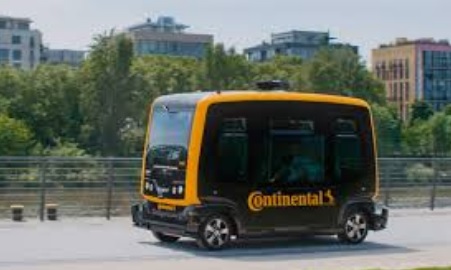 is a testing ground for automated technology that can be supplied to OEMs. The German supplier is watching several OEMs – including General Motors, Ford, Renault-Nissan, and Daimler – making moves toward autonomous mobility services. That might be through an alliance with Lyft, Uber, Maven, Waymo, or another partner committed to the new technology and ride services it has to offer. While the robo-taxi label has stuck in the past year, it’s much more than a taxi ride. This will include shared rides, point-to-point short trips, transporting groups, taxi rides, and shuttle services.
is a testing ground for automated technology that can be supplied to OEMs. The German supplier is watching several OEMs – including General Motors, Ford, Renault-Nissan, and Daimler – making moves toward autonomous mobility services. That might be through an alliance with Lyft, Uber, Maven, Waymo, or another partner committed to the new technology and ride services it has to offer. While the robo-taxi label has stuck in the past year, it’s much more than a taxi ride. This will include shared rides, point-to-point short trips, transporting groups, taxi rides, and shuttle services.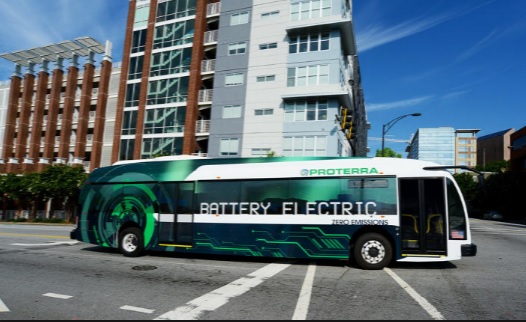 offers a 20% increase in efficiency over Proterra’s standard ProDrive system. For the Catalyst E2 max model, the DuoPower drivetrain enables a nominal range of 426 miles on a single charge, which the company says far exceeds the average distance of North American transit routes. Separately, the company announced that major bus and coach manufacturer
offers a 20% increase in efficiency over Proterra’s standard ProDrive system. For the Catalyst E2 max model, the DuoPower drivetrain enables a nominal range of 426 miles on a single charge, which the company says far exceeds the average distance of North American transit routes. Separately, the company announced that major bus and coach manufacturer 